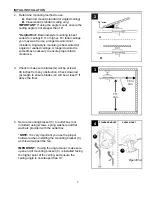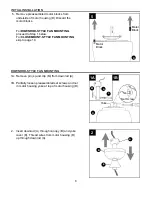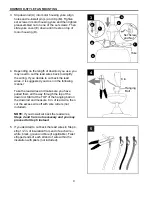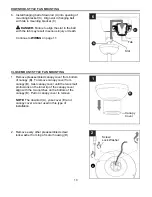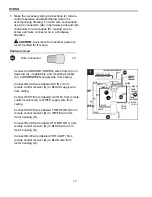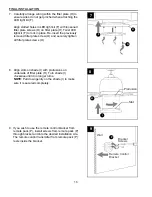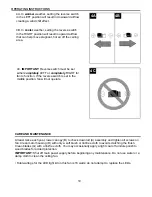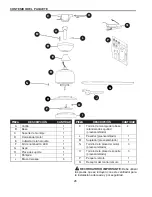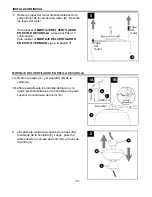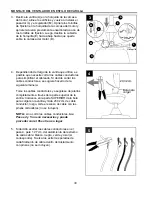
17
CAUTION:
The remote control transmitter can be programmed to multiple receivers or fans.
If this is not desired, turn wall switch off to any other programmable receiver or fan.
OPERATING INSTRUCTIONS
FCC Compliance Notice for Remote Control
Modifications not approved by the party responsible for compliance could void the user's authority
to operate the equipment.
*NOTE: This equipment has been tested and found to comply with the limits for a Class B digital
device, pursuant to Part 15 of the FCC Rules. These limits are designed to provide reasonable
protection against harmful interference in a residential installation. This equipment generates,
uses and can radiate radio frequency energy and, if not installed and used in accordance with
the instructions, may cause harmful interference to radio communications. However, there is no
guarantee that interference will not occur in a particular installation. If this equipment does cause
harmful interference to radio or television reception, which can be determined by turning the
equipment off and on, the user is encouraged to try to correct the interference by one or more of
the following measures:
* Reorient or relocate the receiving antenna.
* Increase the separation between the equipment and receiver.
* Connect the equipment into an outlet on a circuit different from that to which the
receiver is connected.
Consult the dealer or an experienced radio/TV technician for help.
Remove protective covering from battery in
remote pack (P) and discard protective covering.
Remove battery cover from back of remote
control transmitter in remote pack (P). Install
battery from remote pack (P) with positive (+)
end toward top of remote control transmitter.
Replace battery cover on remote control
transmitter.
WARNING
:
Choking Hazard
- Small parts.
Keep battery away from children.
1.
1
Battery
Cover
NOTE:
Battery is NOT rechargeable. Remove battery with low or no charge and dispose of
properly.
Remote Control
Transmitter (back side)
Battery
P
CAUTION:
“DO NOT DISPOSE OF BATTERIES IN FIRE, BATTERIES MAY EXPLODE OR
LEAK.” - When disposing of household alkaline batteries, it is best to check with your local and
state recycling or household hazardous waste coordinators concerning the specifics of the
program in your area. You may also locate a recycling center by calling 1-800-8-BATTERY or
1-877-2-RECYCLE or visit www.epa.gov/epawaste/index.htm or www.earth911.org for more
information.





